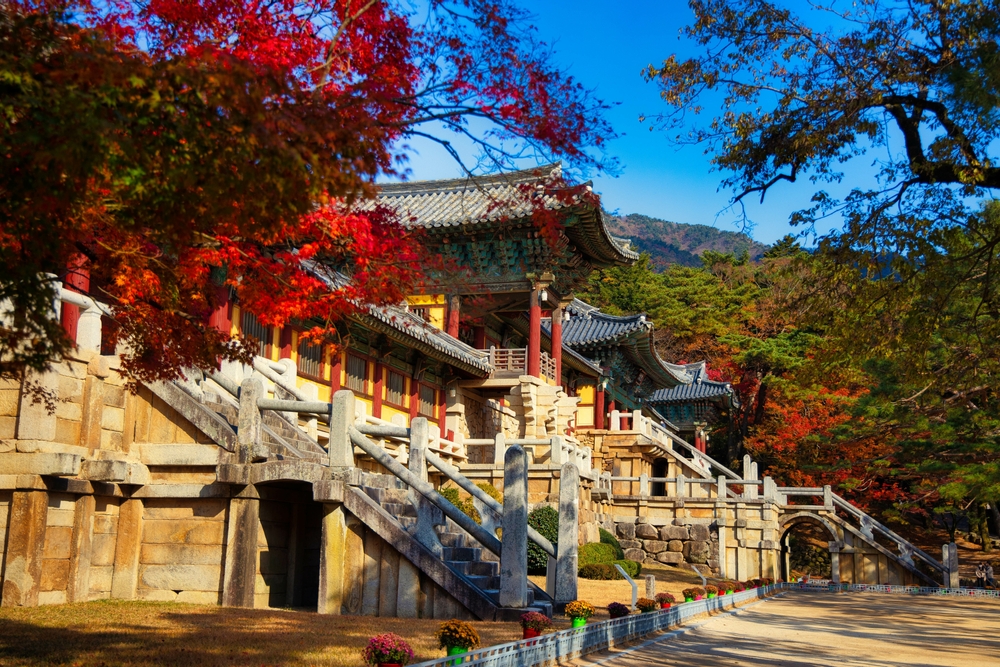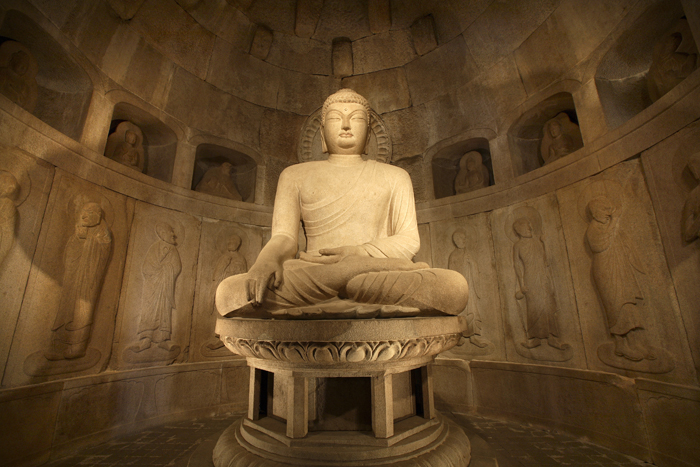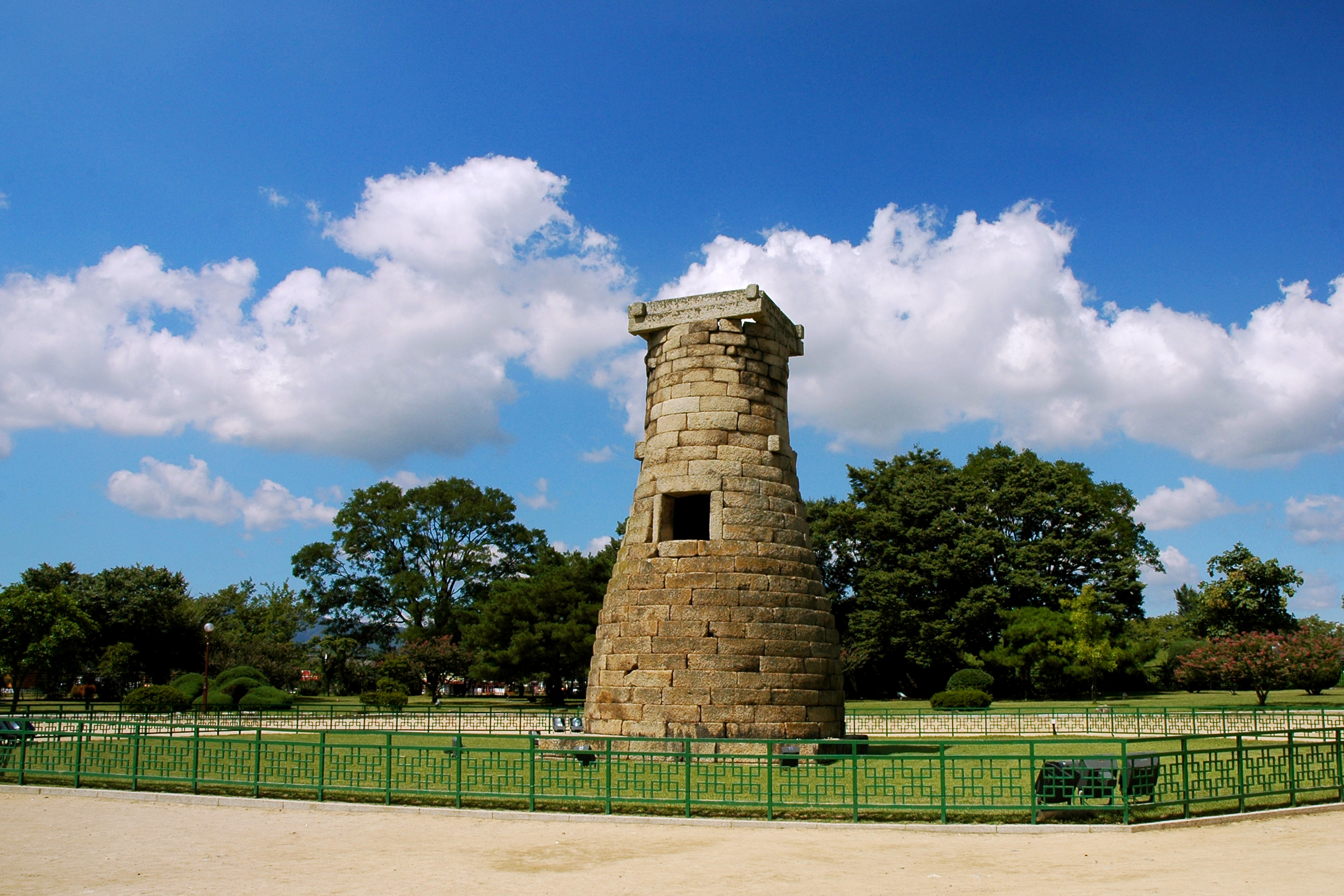
Discover Gyeongju, often called "the museum without walls"—a living treasure trove of Silla-era temples, royal tombs, and ancient artifacts. Dive into its rich heritage and explore iconic sites ranging from Bulguksa Temple and Seokguram Grotto to Hwangnidan-gil's charming hanok cafés.

A UNESCO World Heritage Site representing the pinnacle of Silla Buddhist art and architecture. This ancient temple showcases the sophisticated craftsmanship of the 8th century.
UNESCO World Heritage
An artificial stone temple featuring a magnificent granite Buddha statue. This masterpiece of Buddhist art offers breathtaking views of the East Sea at sunrise.
UNESCO World Heritage
One of the world's oldest surviving astronomical observatories, built during the reign of Queen Seondeok. A testament to Silla's advanced scientific knowledge.
National Treasure
A trendy street blending traditional hanok architecture with modern cafés and restaurants. Perfect for experiencing contemporary Korean culture in a historic setting.
Trendy District
Former royal palace site featuring an artificial pond with stunning night illuminations. Once served as a banquet hall for the Silla royal family, creating magical reflections after dark.
Night View Spot
A park containing 23 large royal tombs from the Silla period. Walk among the grass-covered burial mounds and explore the Cheonmachong tomb with its ancient treasures and artwork.
Royal TombsVisit the official tourism website for comprehensive information about attractions, accommodations, and guided tour bookings.
Gyeongju Travel – Official InfoExplore comprehensive travel information covering Gyeongju and surrounding regions with detailed itineraries and recommendations.
VisitKorea – Gyeongju & BeyondPlan at least 2-3 days to fully appreciate Gyeongju's historical sites. Spring (April-May) and autumn (September-November) offer the best weather and beautiful scenery. Most major attractions are accessible by foot or bicycle, and bike rental services are available throughout the city center.